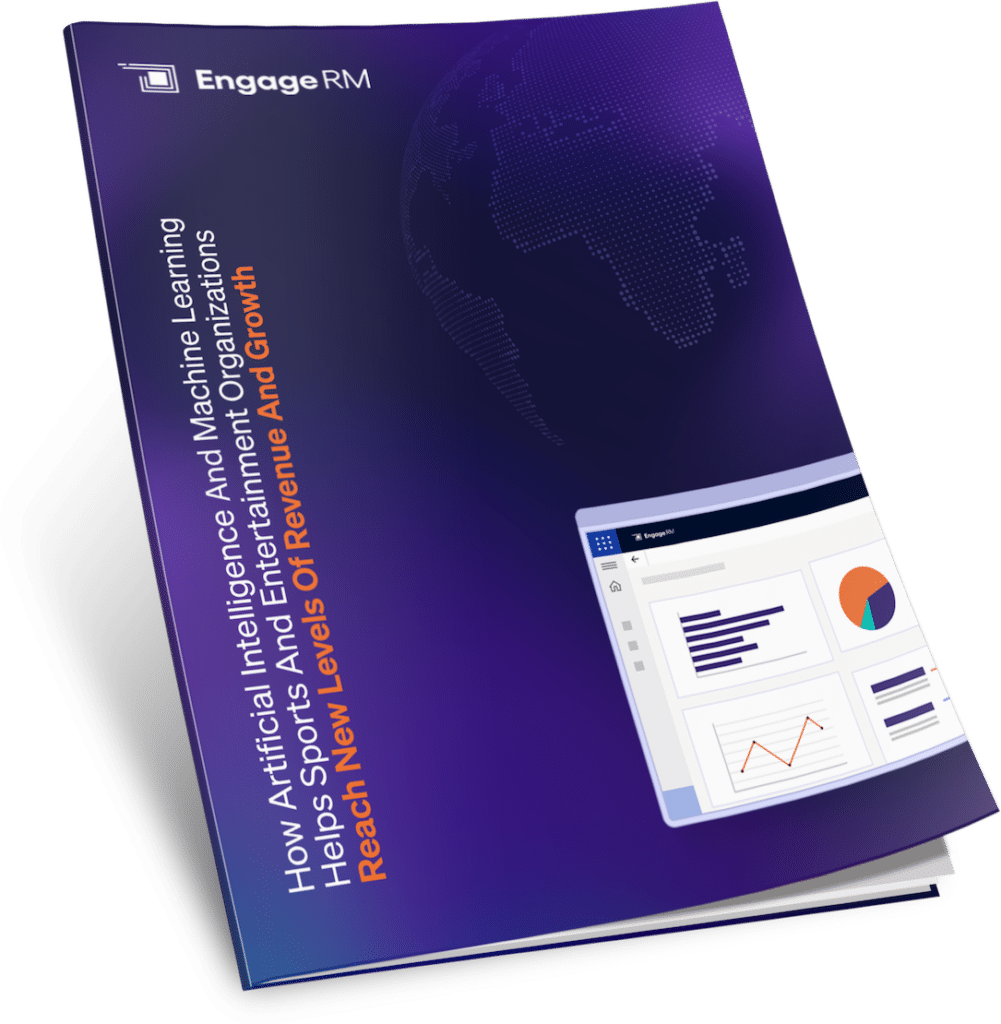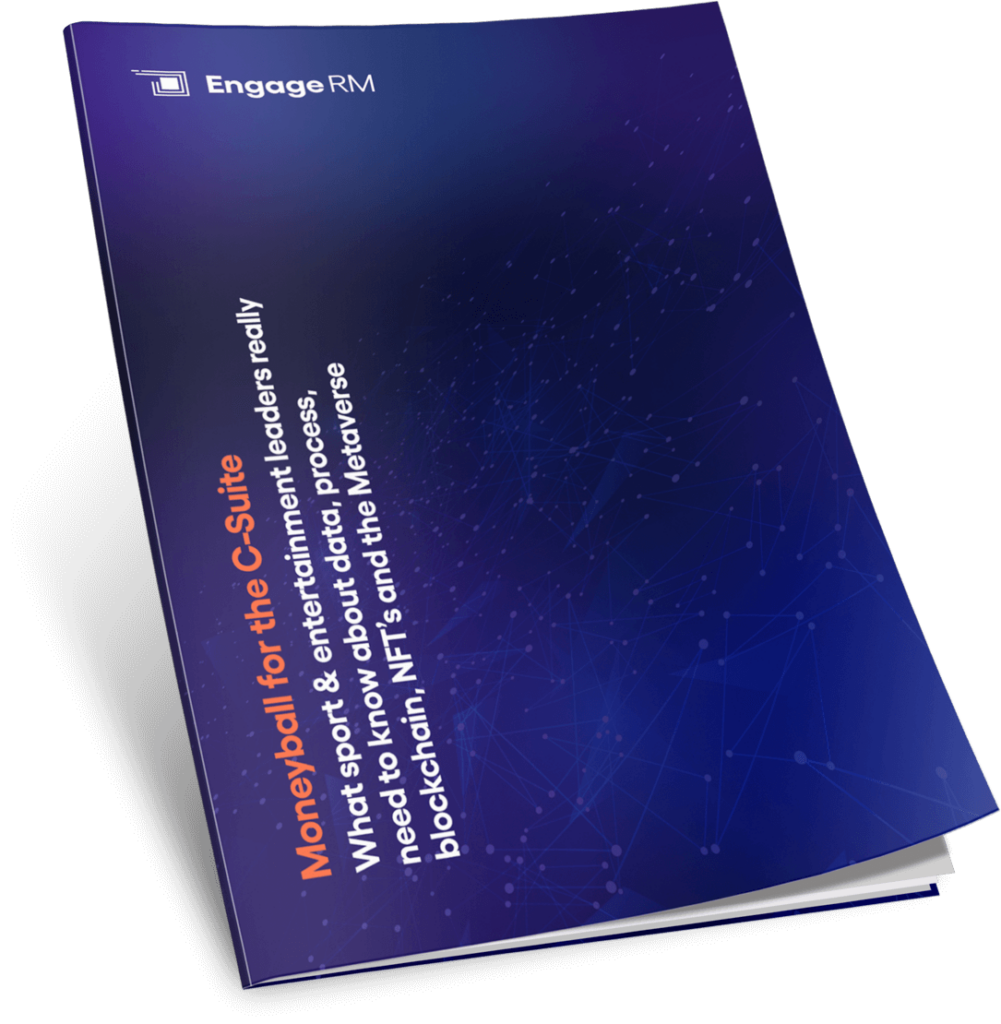Understanding NFT benefits in the live events sector
17 January 2022
NFTs offer massive disruptive potential in sports and entertainment as part of the broader shift towards decentralization. However, as EngageRM Founder Brett Yorgey explains, it is essential that event organizers and rights-holders, as well as the consumers, recognize the scale of the operational and engagement benefits associated with NFTs in order to maximize the opportunity at hand.
The growth of non-fungible tokens (NFTs) in sports and entertainment over the past 12 months has been spectacular.
However, the sustainability of NFTs in this space is reliant on sports organizations, venues, event operators and rights-holders, as well as consumers, understanding fully the immense potential.
At the moment, that is tricky.
NFTs are still relatively new in this space and are wrapped up in volatile cryptocurrencies and convoluted tech-speak that is too complicated to grasp for many professionals in these sectors, and not to mention members of the general public.
So, as we begin 2022, there is a big educational play required now and in the coming months in terms of explaining very clearly what NFTs can offer, and it is the role of companies like EngageRM to take a leading role in this respect.
Engagement
From the perspective of the consumer, the engagement opportunities of NFTs are incredibly exciting across all these sectors.
Of course, there is the chance to grab a digital asset to remember the concert or the game you have attended, and we have already seen some major event organizers dabble in digital ticket stubs.
Rights-holders are also increasingly aware though of bundling other elements into the mix that can be unlocked by an NFT to enhance the experience and, ultimately, boost loyalty.
The backdrop to this growing recognition is, of course, the potential to make money, which has understandably garnered the bulk of the attention in the mainstream media so far with NFTs.
Many event executives will have taken note of the high-profile NFT projects over the past year that have generated truly eye-watering sums. Having been hypnotized by the dollar signs, they may be tempted to dive straight in without having established a proper strategy.
However, we would always caution against such a leap of faith, as the alternative approach of building carefully crafted, sustainable foundations in the NFT space can be lucrative for years to come.
Future signposts
In fact, we have already seen some really innovative and clever initiatives that can provide signposts for the future in our industry.
Last year, Kings of Leon released an album as an NFT on the blockchain-based music platform YellowHeart, and generated more than $2m through token sales alone. As part of the launch, a handful of top-end NFTs were auctioned off to super-fans, giving them front-row seats to one of the band’s shows per tour for life.
Then, just a few days ago, here in Melbourne, the Australian Open offered tennis fans the chance to buy ‘art ball’ NFTs that automatically update with match and ball-tracking data from the tournament. The NFT holders will also have access to limited edition merchandise and various future benefits.
Creative approaches such as these illustrate how NFTs can be used to bring individuals closer to the action.
Essentially, an NFT can act as a key, and unlock unique pieces of information or exclusive experiences, as well as offering a digital asset that is represented by a unique code on the blockchain.
With this in mind, NFTs are tailor-made to disrupt ticketing for live events.
Smart contracts
One of the most interesting aspects of NFTs that is often overlooked is the smart contract functionality that underpins them on the blockchain.
This will allow, for example, the person or entity who created the NFT to generate incremental income – perhaps 5% of the value of each sale of the item – stretching years into the future.
These smart contacts, which run programs on the blockchain when certain conditions are met, can have major implications in ticketing and live events.
For example, they can set a specific resale price that includes an additional fee for the event operator and the artist, if the initial buyer sells it on. This would prevent the ticket ending up on a secondary website at an inflated price.
There are other automated processes that can be triggered through a smart contract in relation to the behaviors and interests of the ticket-holder that can put personalization at the center of the individual’s experience, whether they are at the venue or attending virtually.
From an operational point of view, releasing tickets as NFTs offers event organizers an enormous opportunity to retain control, increase income and, above all, enhance the customer experience so they are more likely to return in the future.
Utility
One of the most common question marks around NFTs is around their utility. But it is clear that there are numerous potential uses for NFTs in live sport and entertainment that extend way beyond simply holding a digital file in a wallet.
Dovetailed with the growth of decentralized digital identities, as I outlined in a recent article, NFTs have the potential to transform our industry as we shift irrevocably towards a decentralized landscape.
It is still early days for NFTs and even their advocates agree that communicating the benefits of these digital assets to the mainstream will be the key to maximizing the opportunity.
As a business at the cutting edge of our industry, we are committed to ensuring our clients and colleagues across the sector understand the full scale of the potential of NFTs over the coming months and years so they can benefit, as well as their customers.









